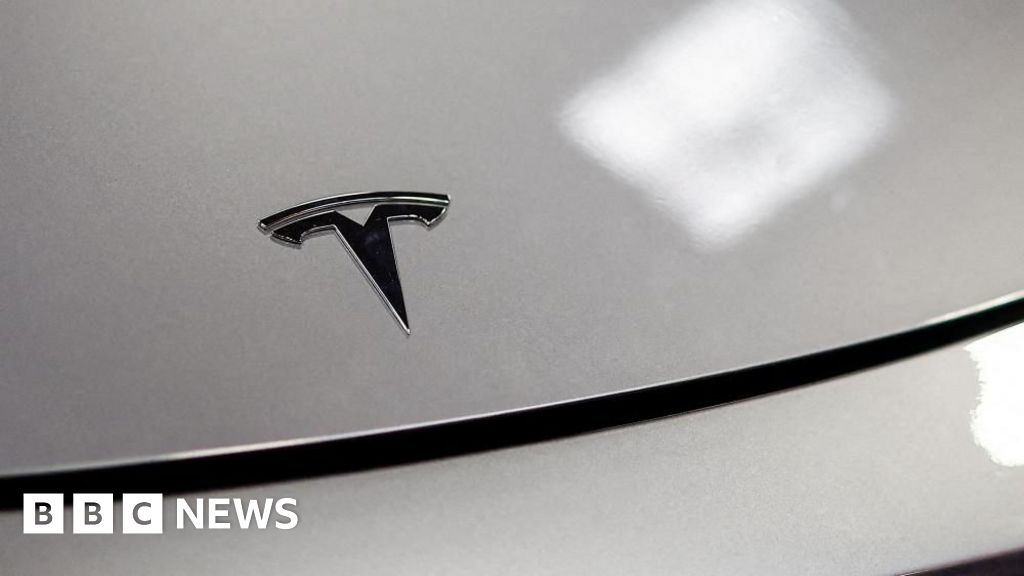
Carmaker Tesla has asked a federal court in Florida to throw out a verdict from a jury that found the company partly liable in a 2019 crash that killed a pedestrian and severely injured another.
Lawyers for the victims had argued that Tesla’s Autopilot driver assistance software contributed to the crash, failing to alert the driver of a Model S and activate the brakes.
Tesla blamed the driver for the crash, and on Friday asked the court to overturn the verdict, order a new trial, or reduce the punitive damages award.
The firm was ordered to pay $243m (£189m) in damages amid claims that boss Elon Musk misrepresented the software’s capabilities.
In a written argument to the court, Tesla said the $243m award flew in the face of “common sense.”
“Auto manufacturers do not insure the world against harms caused by reckless drivers,” the company said.
But Brett Schreiber, who is representing the victims, said the bid “is the latest example of Tesla and Musk’s complete disregard for the human cost of their defective technology”.
“The jury heard all the facts and came to the right conclusion that this was a case of shared responsibility, but that does not discount the integral role Autopilot and the company’s misrepresentations of its capabilities played in the crash,” he added.
Mr Schreiber said he was confident the court would uphold the original verdict.
At trial, the jury heard that driver George McGee had lost sight of the road when he dropped his phone as he was approaching an intersection, causing his car to continue through it and crash into an SUV parked on the other side.
Neither Mr McGee nor the Autopilot software hit the brakes in time to prevent the vehicle from hitting the two victims who were standing nearby.
Naibel Benavides Leon, 22, was killed when she was struck by McGee’s Model S and her boyfriend, Dillon Angulo, suffered life-long injuries.
Tesla accused the victims’ lawyers of overwhelming the jury “with a flood of highly prejudicial but irrelevant evidence” including statements from Mr Musk.
The lawyers also argued that the multi-million punitive damages award should be discarded or significantly reduced because such punishment requires clear evidence of “egregious wrongdoing” by the manufacturer.
The jury awarded the victims $329m in total damages, including $129m in compensatory damages and $200m in punitive damages which aims to deter Tesla from harmful behaviour in the future.
While other federal lawsuits have been brought against Tesla alleging its Autopilot played a role in fatal crashes, the Florida case which Tesla appealed on Friday was the first federal case of its kind to go to a jury.
Last year, Tesla settled a lawsuit over a 2018 crash that killed an Apple engineer after his Model X collided with a highway barrier while operating the company’s Autopilot software.
In 2023, a California state jury found Tesla was not at fault in a case in which it was alleged that Autopilot had led to a death.
At trial, Mr McGee said his concept of Tesla’s Autopilot was that it would assist him if he made a mistake – adding that he felt the software had failed him.
Mr McGee has settled a separate lawsuit with the victims for an undisclosed sum.





